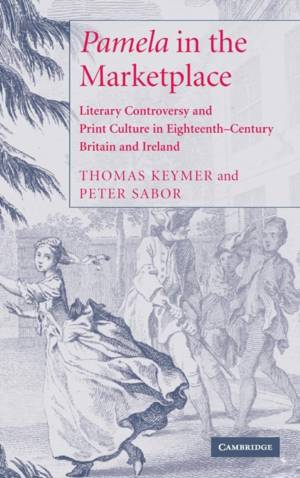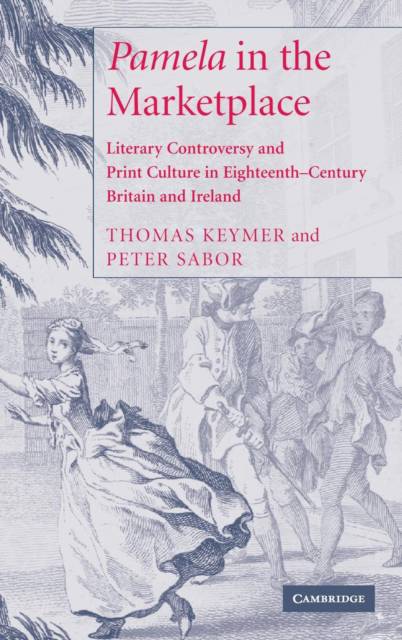
- Afhalen na 1 uur in een winkel met voorraad
- Gratis thuislevering in België vanaf € 30
- Ruim aanbod met 7 miljoen producten
- Afhalen na 1 uur in een winkel met voorraad
- Gratis thuislevering in België vanaf € 30
- Ruim aanbod met 7 miljoen producten
Zoeken
'Pamela' in the Marketplace
Literary Controversy and Print Culture in Eighteenth-Century Britain and Ireland
Thomas Keymer, Peter Sabor
Hardcover | Engels
€ 172,95
+ 345 punten
Uitvoering
Omschrijving
Samuel Richardson's Pamela (1740) is often regarded as the first true novel in English and a landmark in literary history. As the best selling novel of its time, it provoked a swarm of responses: panegyrics and critiques, parodies and burlesques, piracies and sequels, comedies and operas. The controversy it inspired has become a standard point of reference in studies of the rise of the novel, the history of the book and the emergence of consumer culture. In the first book-length study of the Pamela controversy since 1960, Thomas Keymer and Peter Sabor offer an original definitive account of the novel's enormous cultural impact.
Specificaties
Betrokkenen
- Auteur(s):
- Uitgeverij:
Inhoud
- Aantal bladzijden:
- 306
- Taal:
- Engels
Eigenschappen
- Productcode (EAN):
- 9780521813372
- Verschijningsdatum:
- 16/01/2006
- Uitvoering:
- Hardcover
- Formaat:
- Genaaid
- Afmetingen:
- 162 mm x 236 mm
- Gewicht:
- 630 g

Alleen bij Standaard Boekhandel
+ 345 punten op je klantenkaart van Standaard Boekhandel
Beoordelingen
We publiceren alleen reviews die voldoen aan de voorwaarden voor reviews. Bekijk onze voorwaarden voor reviews.











